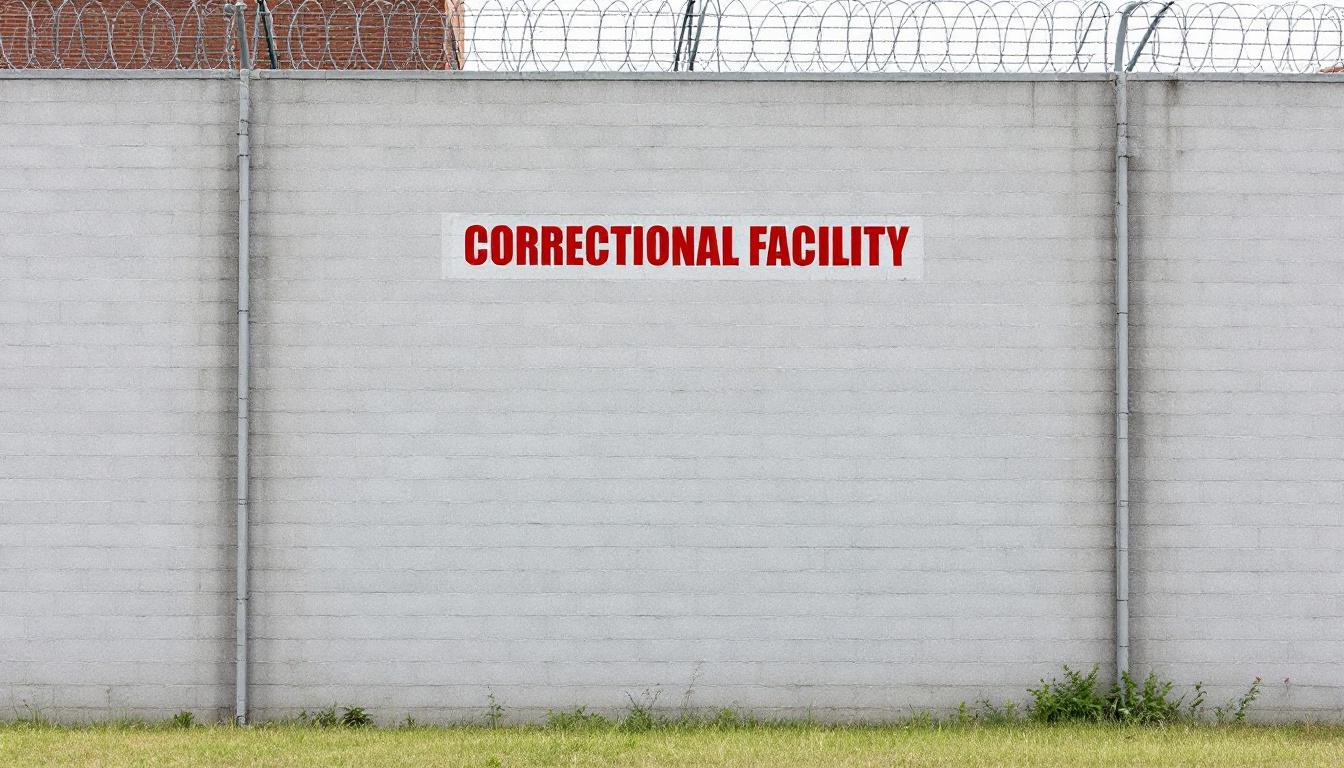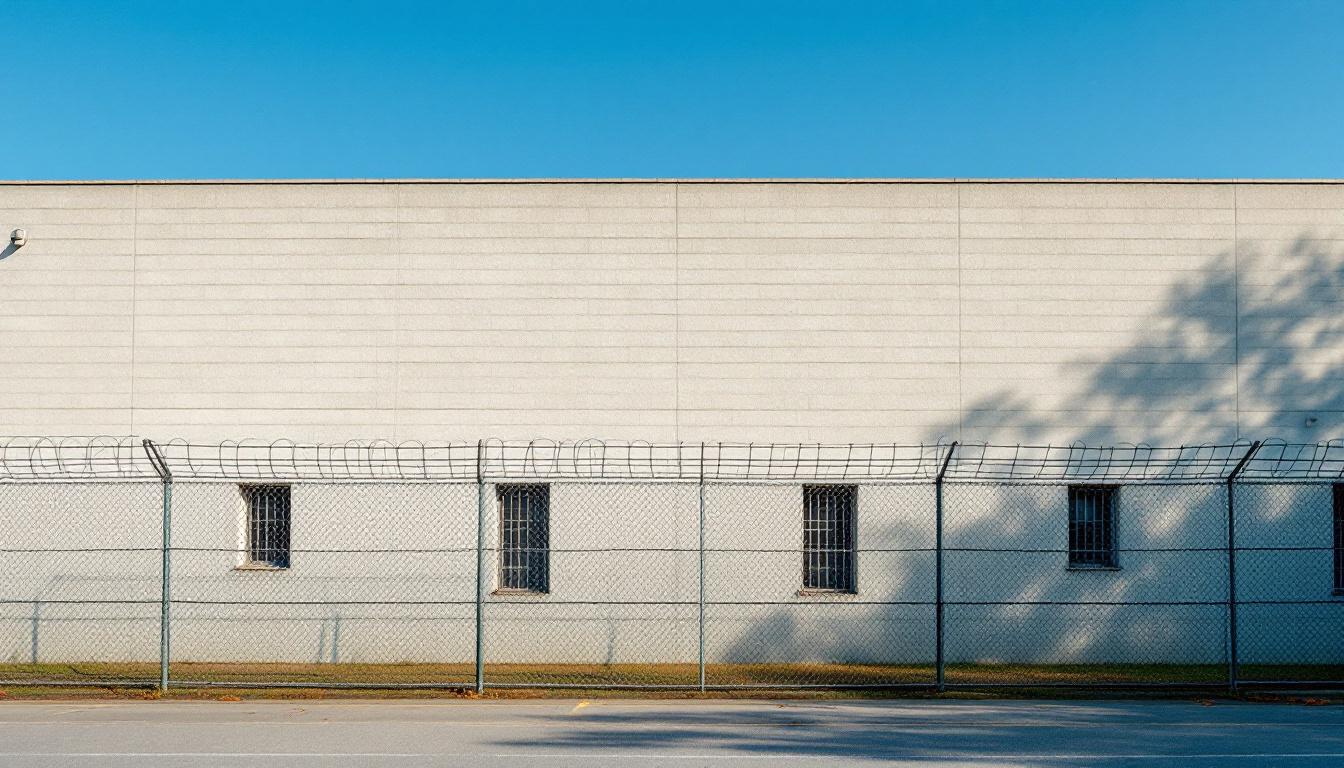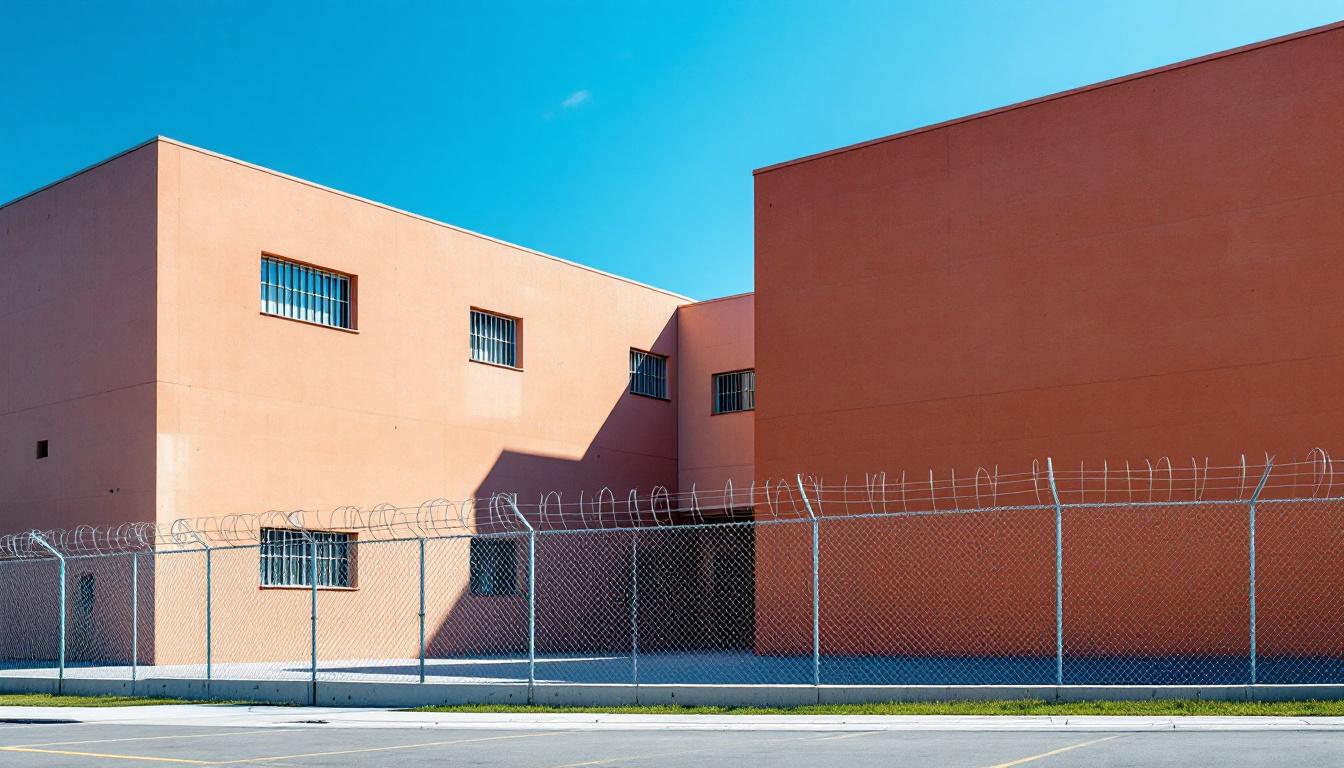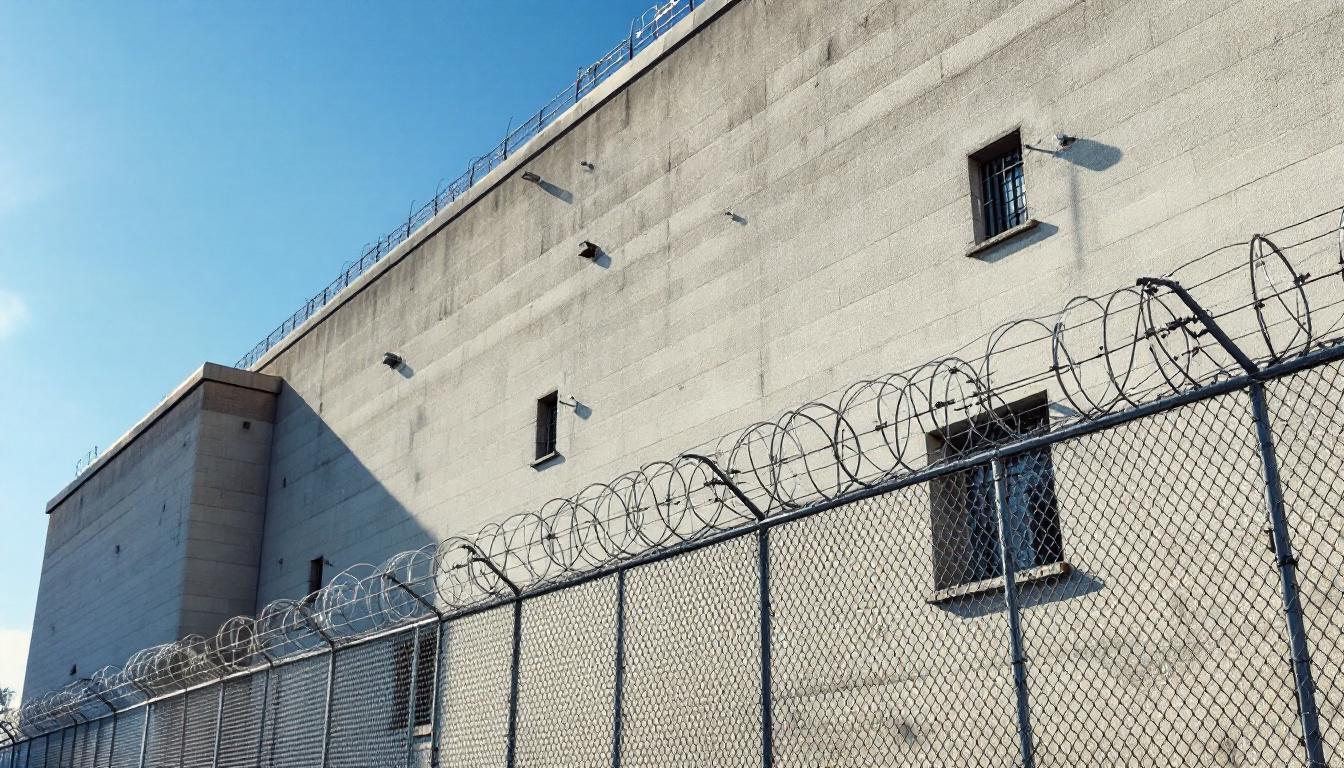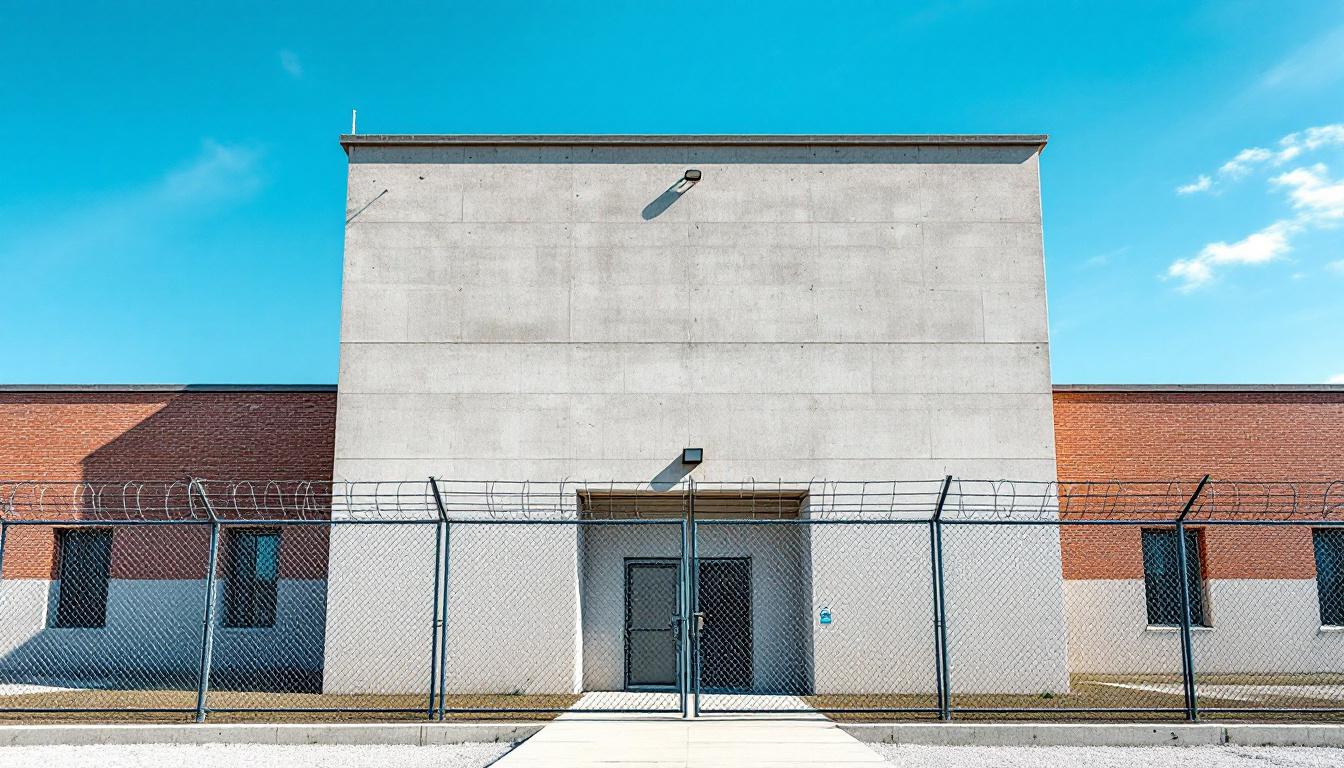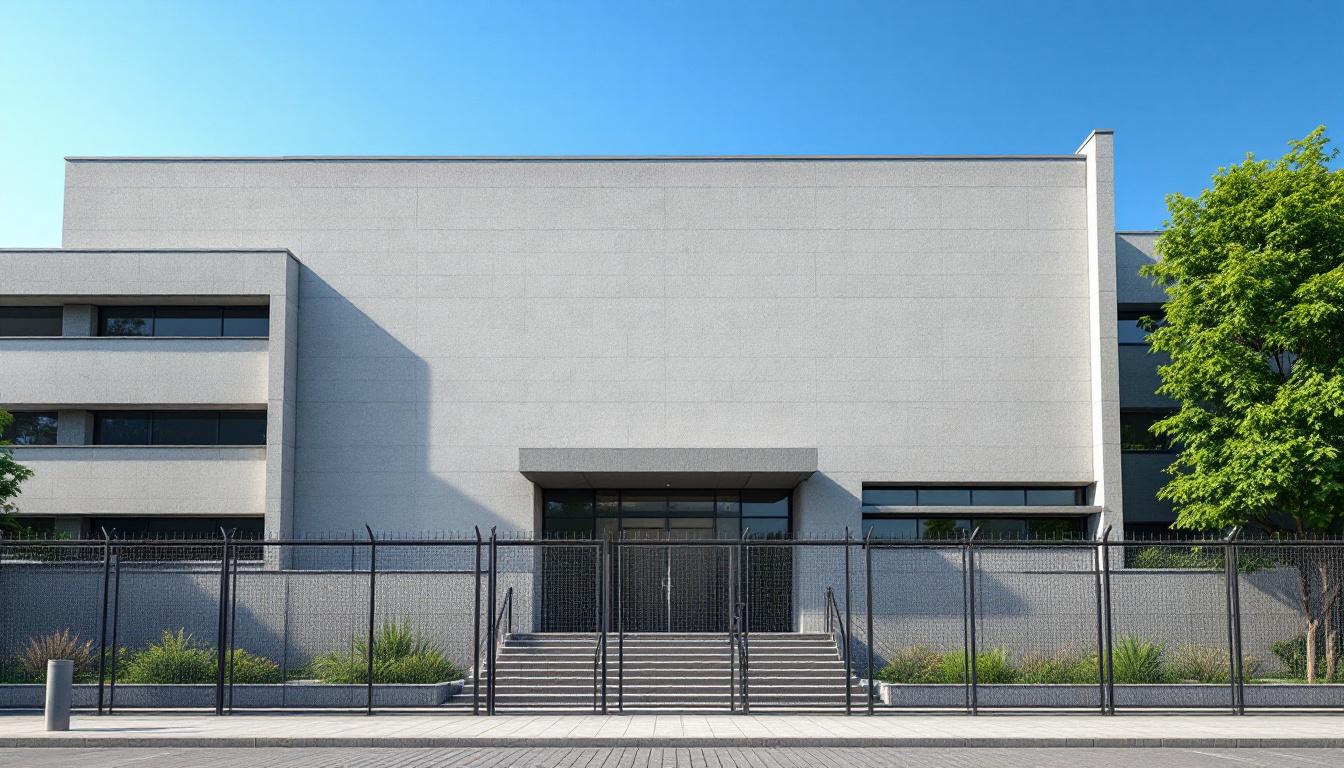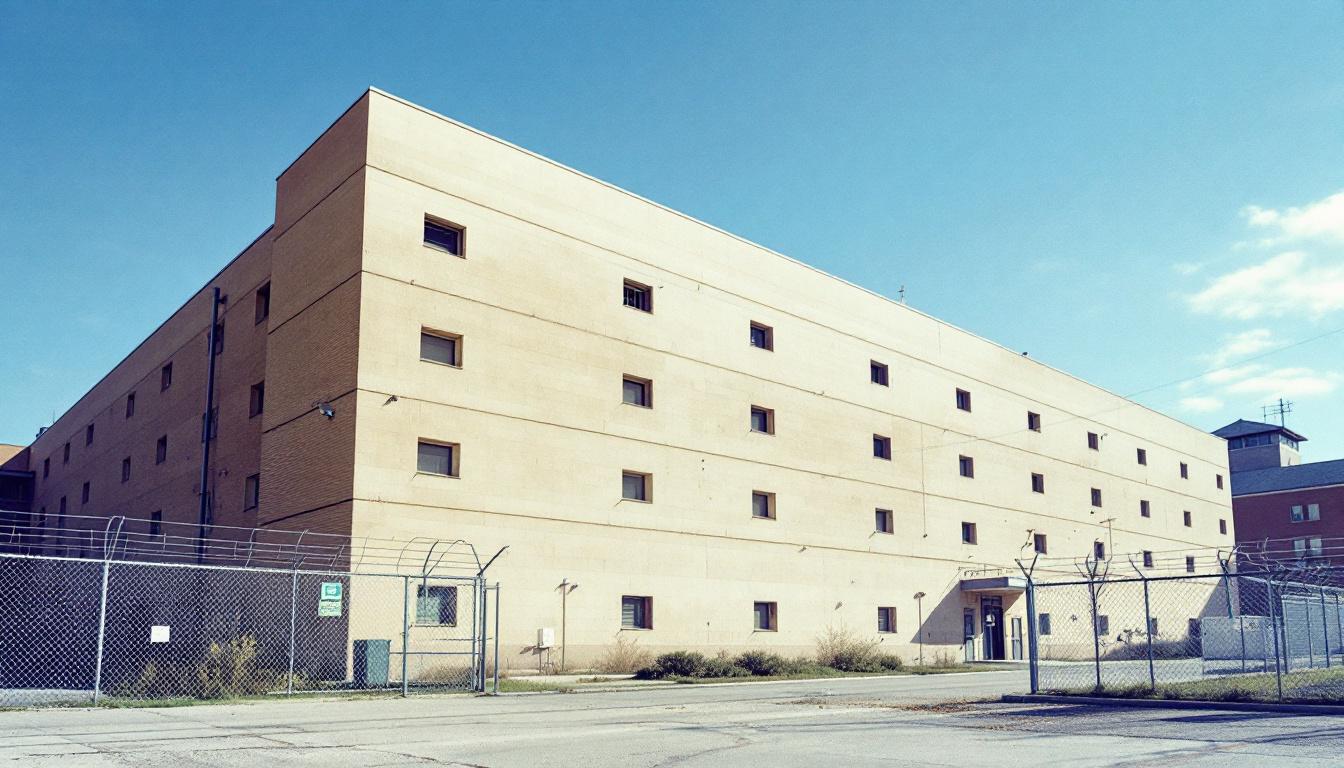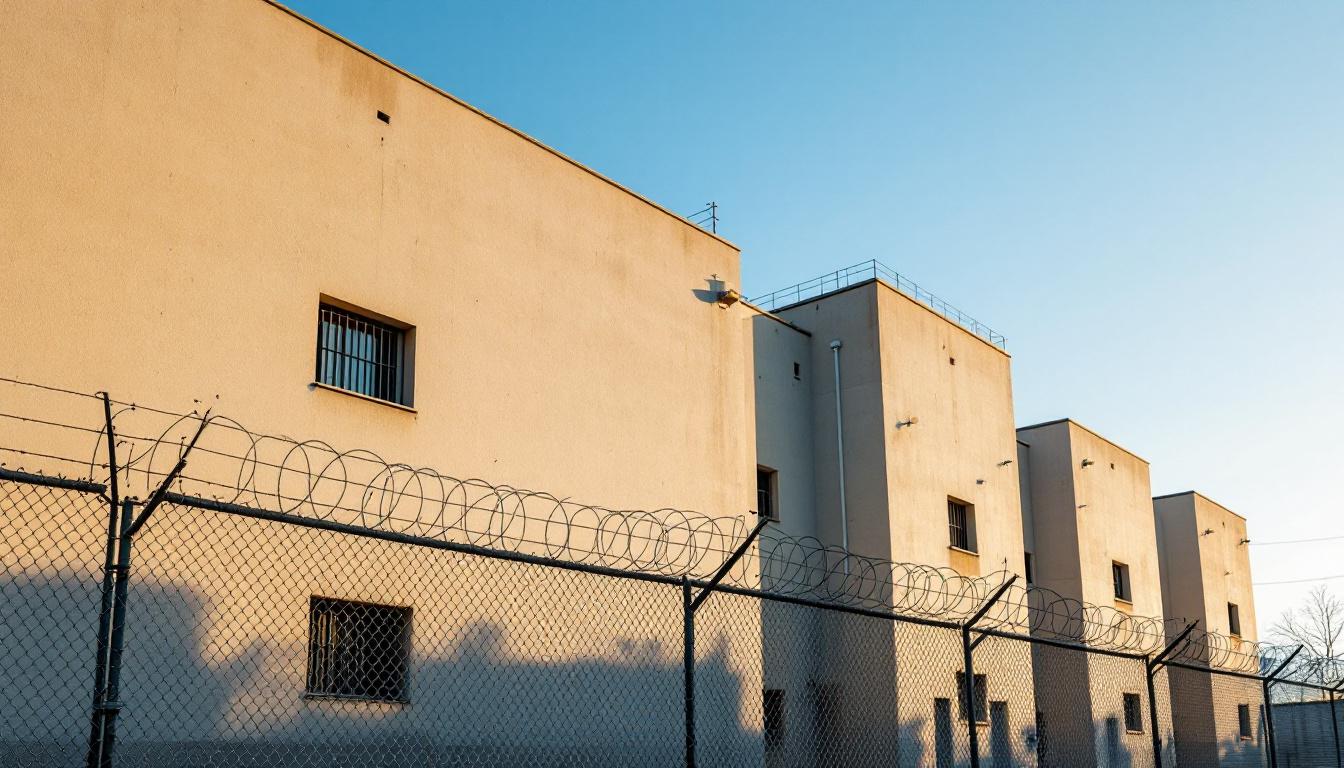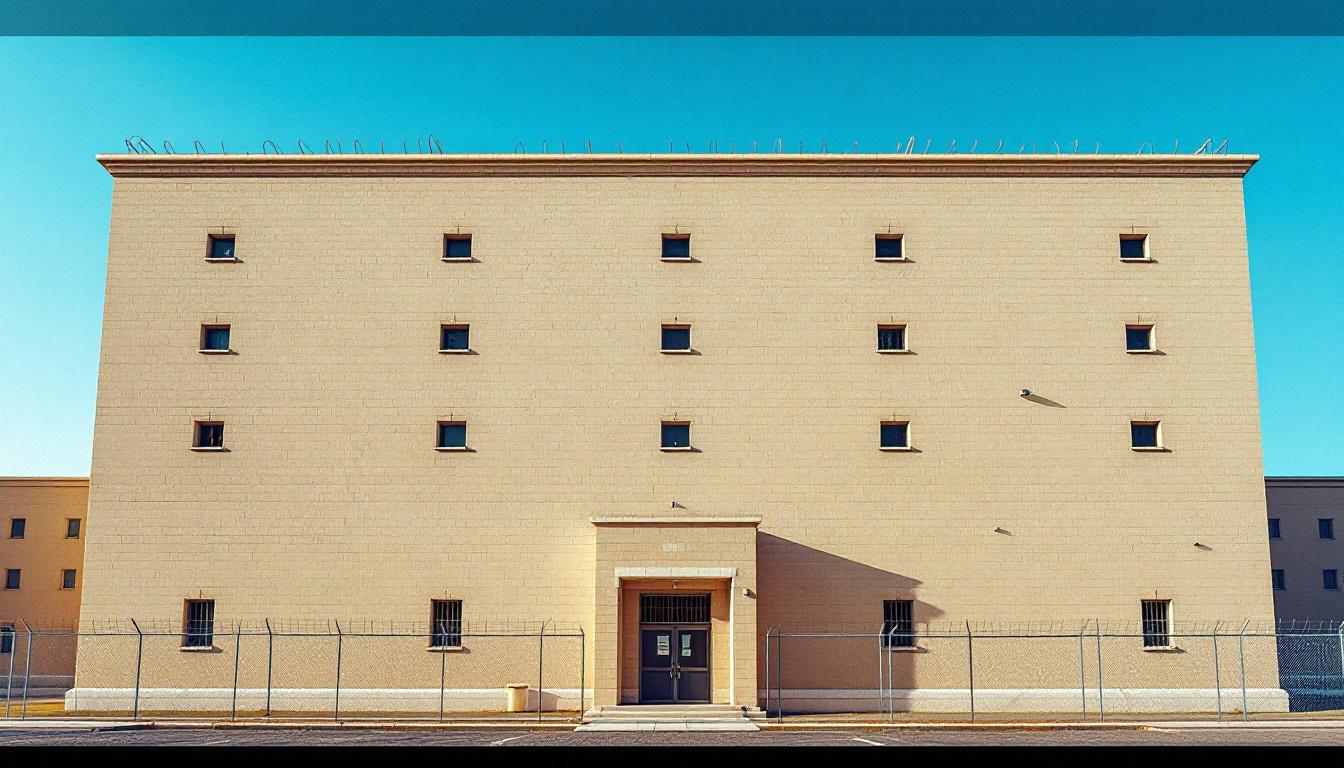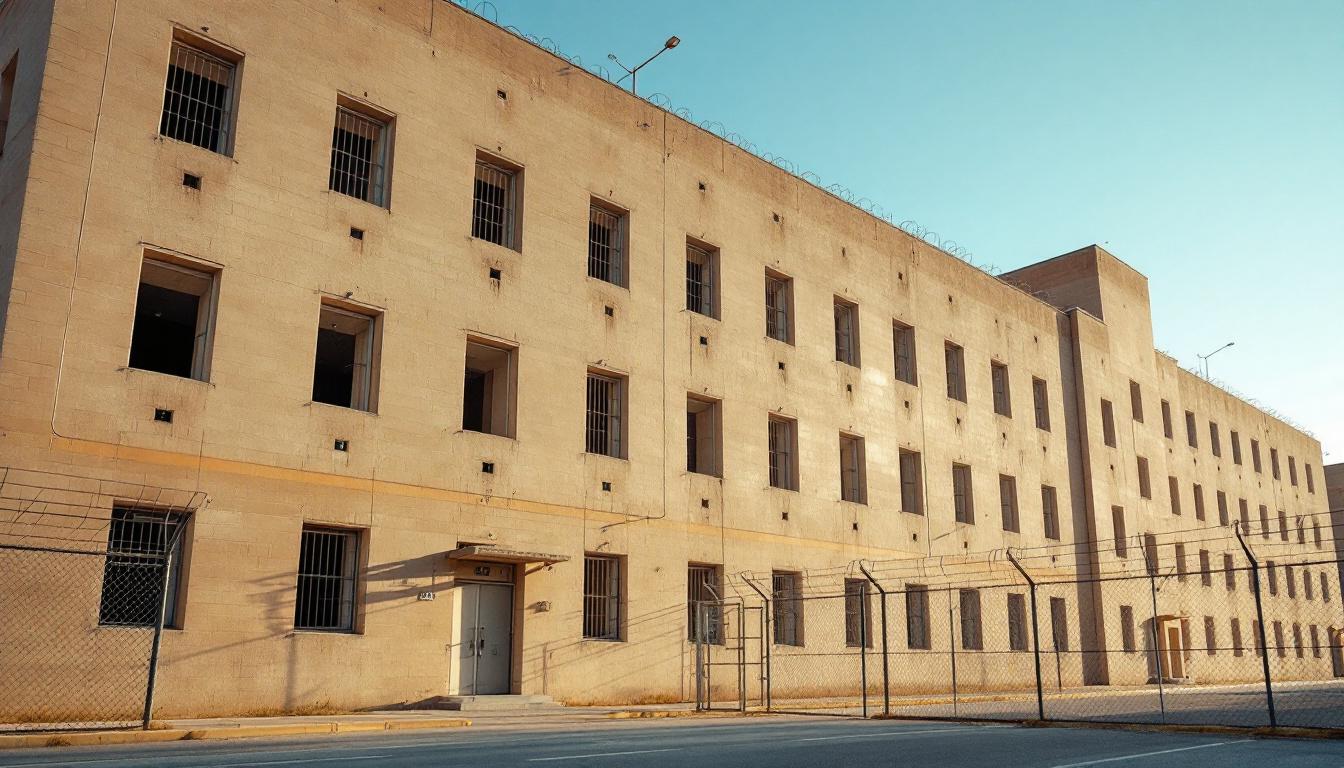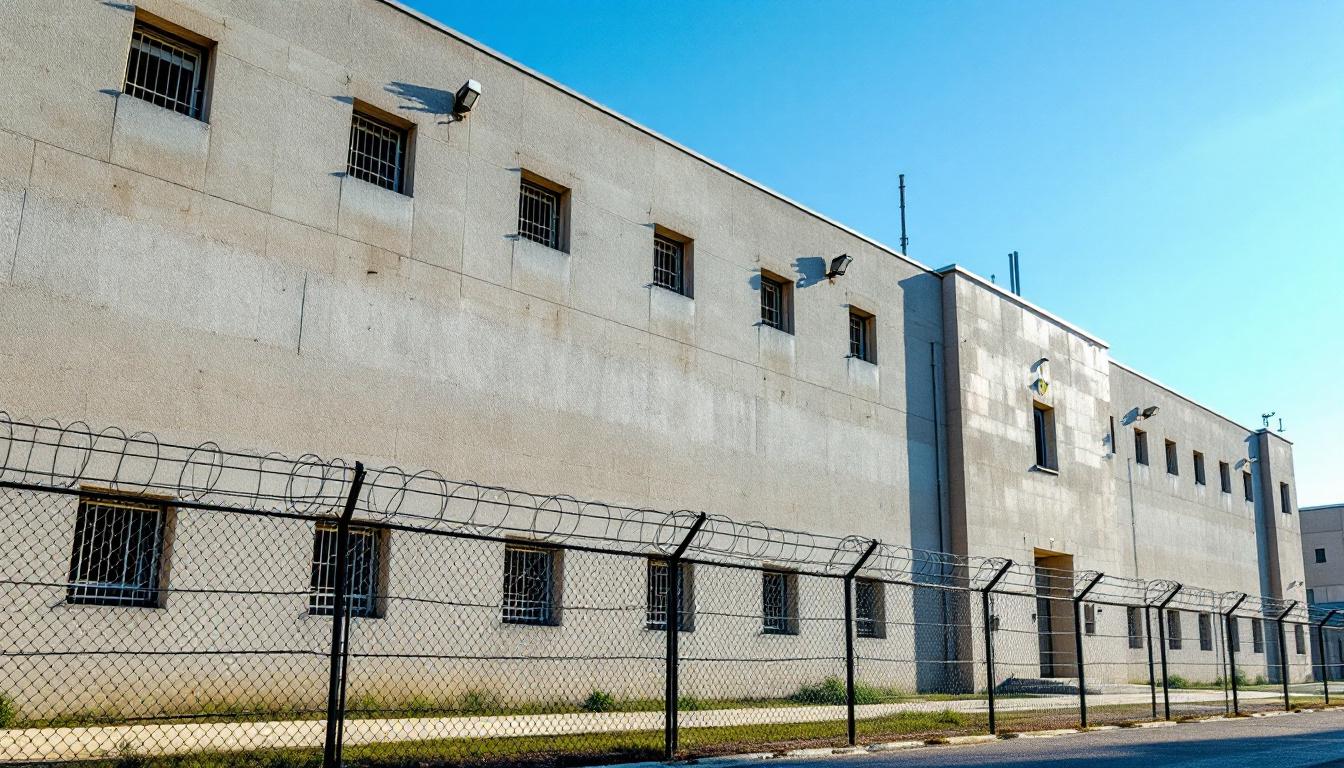
Quick Navigation
How to contact an inmate at Gibson County Sheriff's Office
This comprehensive guide will walk you through how to connect with an inmate at Gibson County Sheriff's Office. Follow the steps below to find an inmate and send letters and photos:
- Search for the inmate using our search tool below
- Create your account or log in to Penmate
- Write your message (up to 6,000 characters)
- Send instantly - inmates receive printed copies daily
Find an Inmate
Search for an inmate to start communicating today
Tip: You can search by first name, last name, or inmate ID number
To contact a person at Gibson County Sheriff's Office start by searching for the person on the official facility website. Perform a search by following these steps:
- Step 1: Enter their first name and last name into the search form and click "Search"
- Step 2: Locate their inmate record
- Step 3: Write down their Inmate ID and any housing information provided
Important! Be sure to enter the person's full name. Nicknames should not be used.
How to Send Messages to Inmates

You can use your phone or computer to send emails, letters, and photos to an inmate. Messages are sent electronically to inmate tablets or kiosks at the facility. If you would like to send a message, start by searching for an inmate at Gibson County Sheriff's Office.
Sending Photos and Postcards

A great way to send love and support to a loved one at Gibson County Sheriff's Office is to send photos and postcards. It only takes a few minutes to send photos from your phone and it makes a huge difference. You can also mail postcards with words of support and inspiration, or design your own postcard for special moments like birthdays and holidays.
Important! Be sure not to send any explicit photos or they may not be approved by the facility. You can also use a photo printing app like Penmate to make sure your photos are printed at the correct size (4x6 or 3x5) and are mailed according to the rules and regulations of Gibson County Sheriff's Office.
Frequently asked questions about Gibson County Sheriff's Office
-
How long does it take to deliver a message?
If you're sending an email message your letter is usually delivered within 24-48 hours. For messages sent via mail you should expect delivery within 3-7 days. All messages will need be approved by Gibson County Sheriff's Office.
-
How much does it cost to send a message to Gibson County Sheriff's Office?
You can send a message free using your phone or mail a message via USPS for the price of a $0.60 stamp and envelope. You can also purchase credits or e-stamps from services starting at $1.99.
-
What services can I use to contact an inmate at Gibson County Sheriff's Office?
Penmate
You can use Penmate to send letters and photos to an inmate from your phone. It's an easy way to stay in touch during your loved one's incarceration. Use the inmate locator to find an inmate's location and contact information, then you can send messages within a few minutes.
Securus messaging
Securus may be another option for communicating with an inmate at Gibson County Sheriff's Office. You can create a friends and family account and purchase credits to send messages. All messages will be reviewed and must be approved by the facility.
JPay
Some county jails and state prisons may support sending messages with JPay. You must register an account with the system, find your loved one, and purchase stamps to send messages. For some locations you can also attach photos.
Smart Jail Mail
You may also check if Smart Jail Mail is available at Gibson County Sheriff's Office. Smart Jail Mail is operated by Smart Communications and has contracted with some state and county jails. After purchasing credits, your messages and photos are sent to the facility, printed out, and then handed out to your loved one.
-
What is the mailing address of Gibson County Sheriff's Office?
Mailing address:
Gibson County Sheriff's Office
112 E Emerson St
Princeton, IN 47670
Phone: (812) 385-3496Business hours:
- Monday: Open 24 hours
- Tuesday: Open 24 hours
- Wednesday: Open 24 hours
- Thursday: Open 24 hours
- Friday: Open 24 hours
- Saturday: Open 24 hours
- Sunday: Open 24 hours
-
What are the visiting hours at Gibson County Sheriff's Office?
Visiting hours at Gibson County Sheriff's Office vary by housing unit and security level. Generally, visits are scheduled on weekends and holidays, with some facilities offering weekday visits. Contact the facility directly at (812) 385-3496 or check their website for the current visiting schedule. Visits typically last 30-60 minutes and must be scheduled in advance.
-
What items are prohibited when sending mail to Gibson County Sheriff's Office?
Prohibited items typically include: cash, personal checks, stamps, stickers, glitter, glue, tape, staples, paperclips, polaroid photos, musical or blank greeting cards, hardcover books, magazines with staples, and any items containing metal or electronics. Only send letters on plain white paper with blue or black ink. Photos must be printed on regular photo paper (no Polaroids). Always check with Gibson County Sheriff's Office for their specific mail policies.
-
How do I send money to an inmate at Gibson County Sheriff's Office?
You can send money to an inmate at Gibson County Sheriff's Office through several methods: 1) Online using JPay, Access Corrections, or the facility's approved vendor, 2) Money orders mailed directly to the facility with the inmate's name and ID number, 3) Kiosks located in the facility lobby, or 4) Over the phone using a credit or debit card. Fees vary by method, typically ranging from $2.95 to $11.95 per transaction.
-
Can I schedule a video visit with an inmate at Gibson County Sheriff's Office?
Many facilities now offer video visitation as an alternative to in-person visits. At Gibson County Sheriff's Office, video visits may be available through services like Penmate, Securus Video Connect, GTL, or ICSolutions. Video visits typically cost $10-20 for 20-30 minutes and must be scheduled in advance. You'll need a computer or smartphone with a camera and reliable internet connection. Contact the facility for their specific video visitation policies and approved vendors.
-
What identification do I need to visit an inmate at Gibson County Sheriff's Office?
All visitors must present valid government-issued photo identification such as a driver's license, state ID, passport, or military ID. Minors must be accompanied by a parent or legal guardian who can provide the minor's birth certificate. Some facilities require visitors to be on the inmate's approved visitation list, which may require a background check. Contact Gibson County Sheriff's Office for specific ID requirements and visitor approval procedures.
-
How can I find out an inmate's release date?
To find an inmate's release date at Gibson County Sheriff's Office, you can: 1) Use the online inmate search tool if available, 2) Call the facility's records department, 3) Contact the inmate's case manager or counselor, or 4) Have the inmate provide this information during a call or visit. For privacy reasons, some facilities only release this information to immediate family members.
Facility Overview
Contact Information
Gibson County Sheriff's Office112 E Emerson St
Princeton, IN 47670
Phone: (812) 385-3496
Official Website

About Gibson County Sheriff's Office
County jails throughout Indiana serve as critical components of local law enforcement and judicial processes, with facilities like Gibson County Jail, IN operating as temporary holding centers for individuals awaiting trial, sentencing, or serving shorter sentences. Located in Princeton, this IN correctional facility functions within the broader framework of Indiana's multi-tiered correctional system, handling pre-trial detainees and sentenced individuals typically serving terms of one year or less. The facility generally operates under the jurisdiction of the Gibson County Sheriff's Department, maintaining security protocols while attempting to balance custody requirements with basic rehabilitative services.
Gibson County Jail's operational philosophy typically emphasizes maintaining secure custody while preparing individuals for eventual reintegration into the Princeton community and surrounding areas. The population services may include basic educational opportunities, substance abuse programming, and work release programs for eligible inmates nearing the end of their sentences. Like many county-level facilities throughout the Midwest region, the jail often collaborates with local social services, mental health providers, and community organizations to address underlying issues that contribute to criminal behavior. These partnerships generally focus on connecting inmates with resources that may help reduce recidivism upon release.
The facility's role within Indiana's correctional landscape involves serving as both a pre-trial detention center and a short-term correctional institution for Gibson County residents. Staff typically work to maintain family connections through visitation programs and communication services, recognizing that maintaining these relationships often supports successful community reintegration. While operating within the constraints of a county-level budget and infrastructure, Gibson County Jail generally strives to provide basic rehabilitation services alongside its primary custody mission, contributing to the overall effectiveness of Indiana's criminal justice system at the local level.
Programs & Services
Through comprehensive support services, the population at Gibson County Jail receives assistance designed to address underlying issues while building essential life skills. The facility's approach recognizes that meaningful change often requires multiple forms of intervention, from addressing educational gaps to developing practical job skills. Programs are typically structured to provide both immediate support during incarceration and tools that may prove valuable upon release into the community.
Educational programs serve as a foundation for personal development, often including basic literacy instruction and GED preparation for those seeking to complete their high school education. Vocational training opportunities may supply hands-on experience in practical trades, with plumbing instruction representing one area where participants can develop marketable skills. These educational and vocational offerings typically emphasize building confidence alongside technical knowledge, recognizing that both academic achievement and practical skills contribute to successful reintegration.
In addition to these foundational programs, therapeutic services like anger management provide the population with strategies for managing emotions and resolving conflicts constructively. Faith-based programs often serve as another pillar of support, offering spiritual guidance and community connection for those who choose to participate. These various support services work together to create a network of assistance that addresses different aspects of personal growth, helping individuals develop the tools and perspectives that may support positive changes in their lives and relationships with family and community.
Daily Life & Visitation
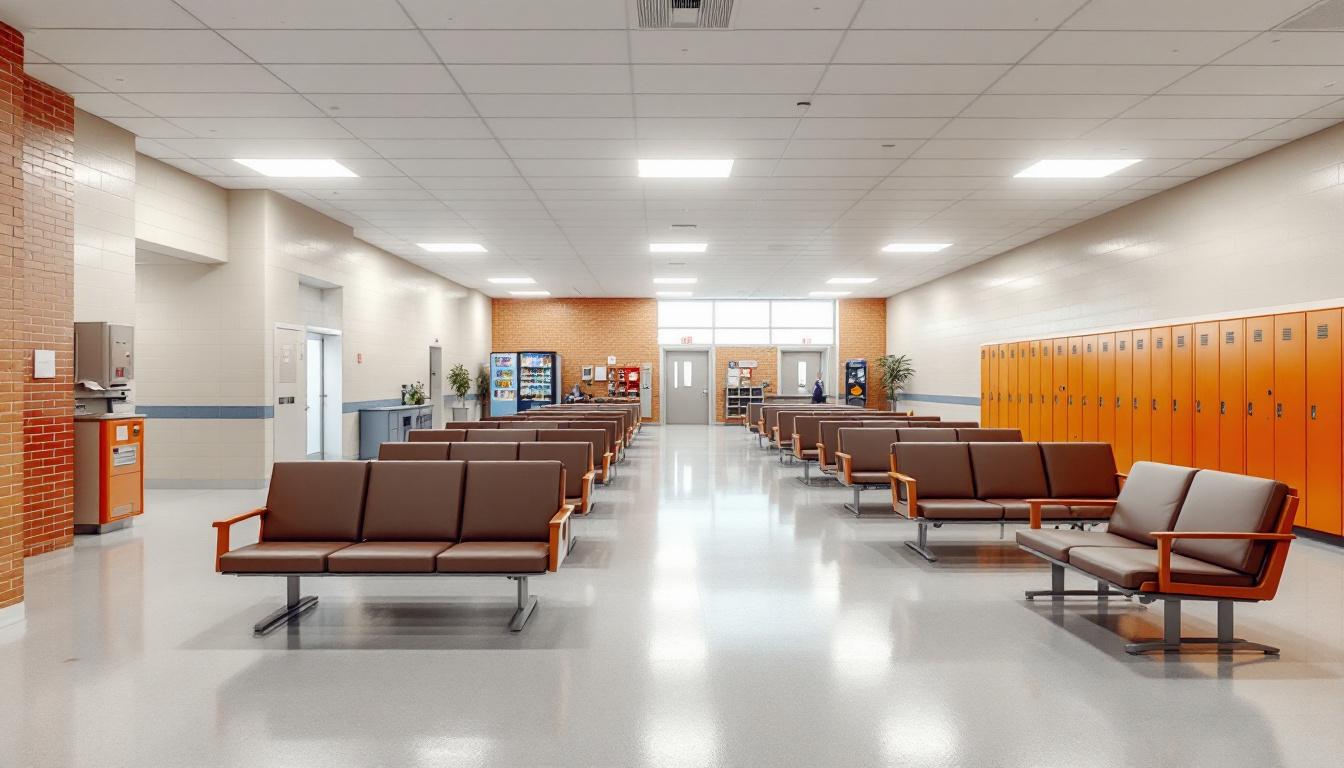
The organizational framework at Gibson County Jail shapes every aspect of how the population experiences their daily routine. Structured schedules now govern when residents wake, eat, and participate in various activities throughout the facility. Staff members regularly coordinate housing assignments and movement between different areas, ensuring that security protocols are maintained while allowing for necessary daily functions. This systematic approach typically provides predictability that helps the population adapt to institutional life.
Living accommodations generally consist of housing units designed to manage different classification levels within the population. Residents are usually assigned to cells or dormitory-style areas based on factors such as security level and behavioral history. Meals are typically served at designated times in common dining areas, though some housing units may receive meals in their living spaces. Personal property is generally limited to approved items, and the population can often access commissary services to purchase additional necessities and approved comfort items.
In addition to this basic structure, the facility may offer various programming opportunities that supply educational and recreational outlets for residents. Exercise periods are typically scheduled in designated areas, allowing the population to maintain physical fitness within security guidelines. Visitation policies generally permit family members and approved contacts to maintain connections through scheduled visits, and communication options often include telephone access and mail services. Work assignments within the facility typically provide opportunities for residents to contribute to daily operations while developing job skills, and structured programming schedules may include educational classes, counseling sessions, or other rehabilitative activities designed to support the population during their time at the facility.
Ready to Connect?
Start communicating with your loved one today
Search for an Inmate
